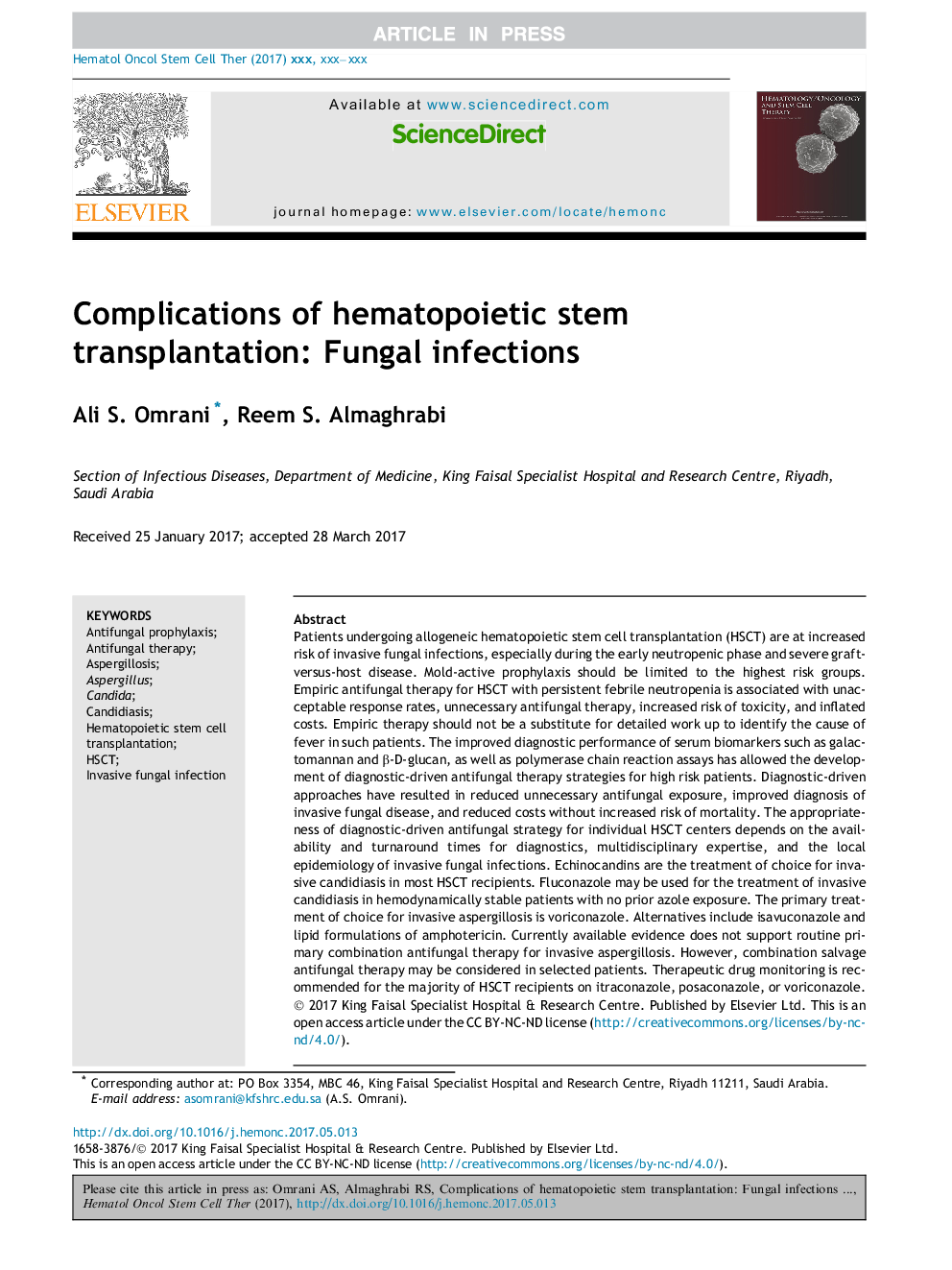| Article ID | Journal | Published Year | Pages | File Type |
|---|---|---|---|---|
| 8452930 | Hematology/Oncology and Stem Cell Therapy | 2017 | 6 Pages |
Abstract
Patients undergoing allogeneic hematopoietic stem cell transplantation (HSCT) are at increased risk of invasive fungal infections, especially during the early neutropenic phase and severe graft-versus-host disease. Mold-active prophylaxis should be limited to the highest risk groups. Empiric antifungal therapy for HSCT with persistent febrile neutropenia is associated with unacceptable response rates, unnecessary antifungal therapy, increased risk of toxicity, and inflated costs. Empiric therapy should not be a substitute for detailed work up to identify the cause of fever in such patients. The improved diagnostic performance of serum biomarkers such as galactomannan and β-D-glucan, as well as polymerase chain reaction assays has allowed the development of diagnostic-driven antifungal therapy strategies for high risk patients. Diagnostic-driven approaches have resulted in reduced unnecessary antifungal exposure, improved diagnosis of invasive fungal disease, and reduced costs without increased risk of mortality. The appropriateness of diagnostic-driven antifungal strategy for individual HSCT centers depends on the availability and turnaround times for diagnostics, multidisciplinary expertise, and the local epidemiology of invasive fungal infections. Echinocandins are the treatment of choice for invasive candidiasis in most HSCT recipients. Fluconazole may be used for the treatment of invasive candidiasis in hemodynamically stable patients with no prior azole exposure. The primary treatment of choice for invasive aspergillosis is voriconazole. Alternatives include isavuconazole and lipid formulations of amphotericin. Currently available evidence does not support routine primary combination antifungal therapy for invasive aspergillosis. However, combination salvage antifungal therapy may be considered in selected patients. Therapeutic drug monitoring is recommended for the majority of HSCT recipients on itraconazole, posaconazole, or voriconazole.
Keywords
Related Topics
Life Sciences
Biochemistry, Genetics and Molecular Biology
Cancer Research
Authors
Ali S. Omrani, Reem S. Almaghrabi,
